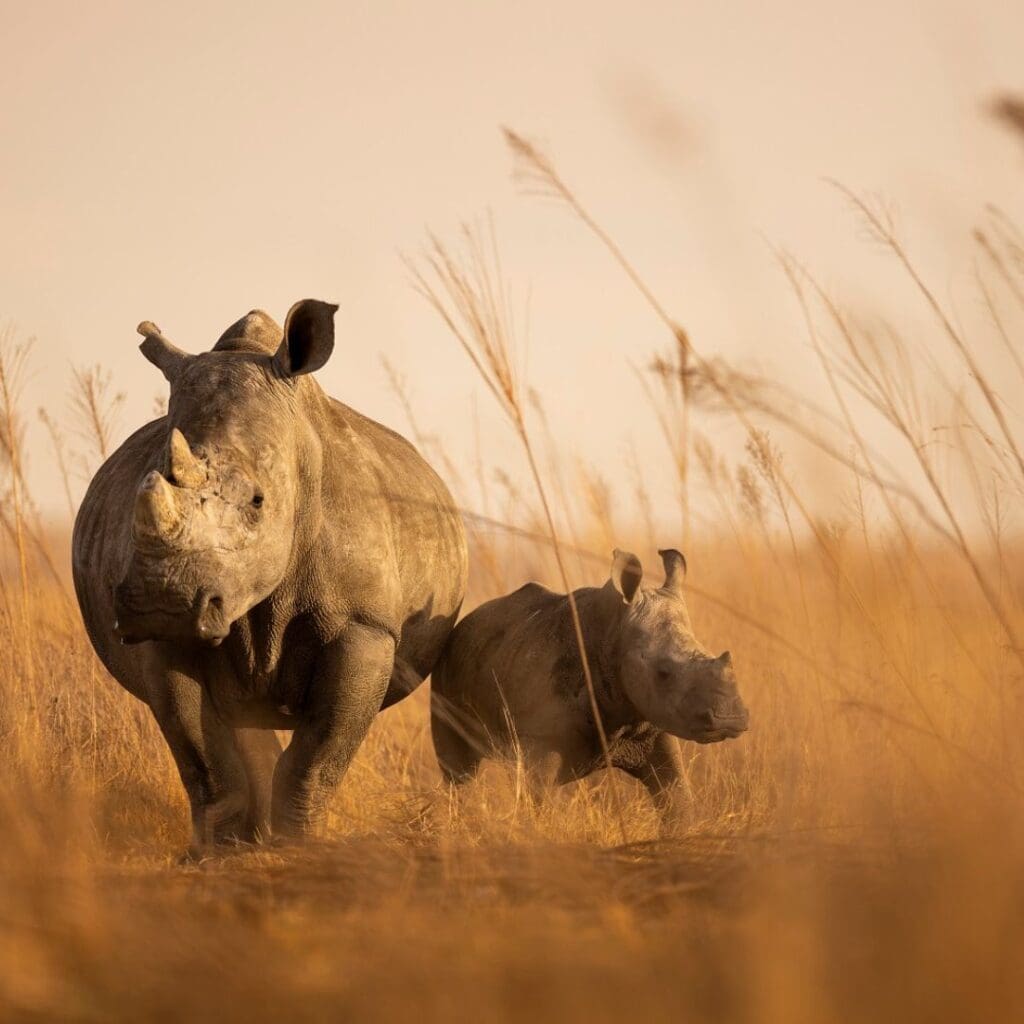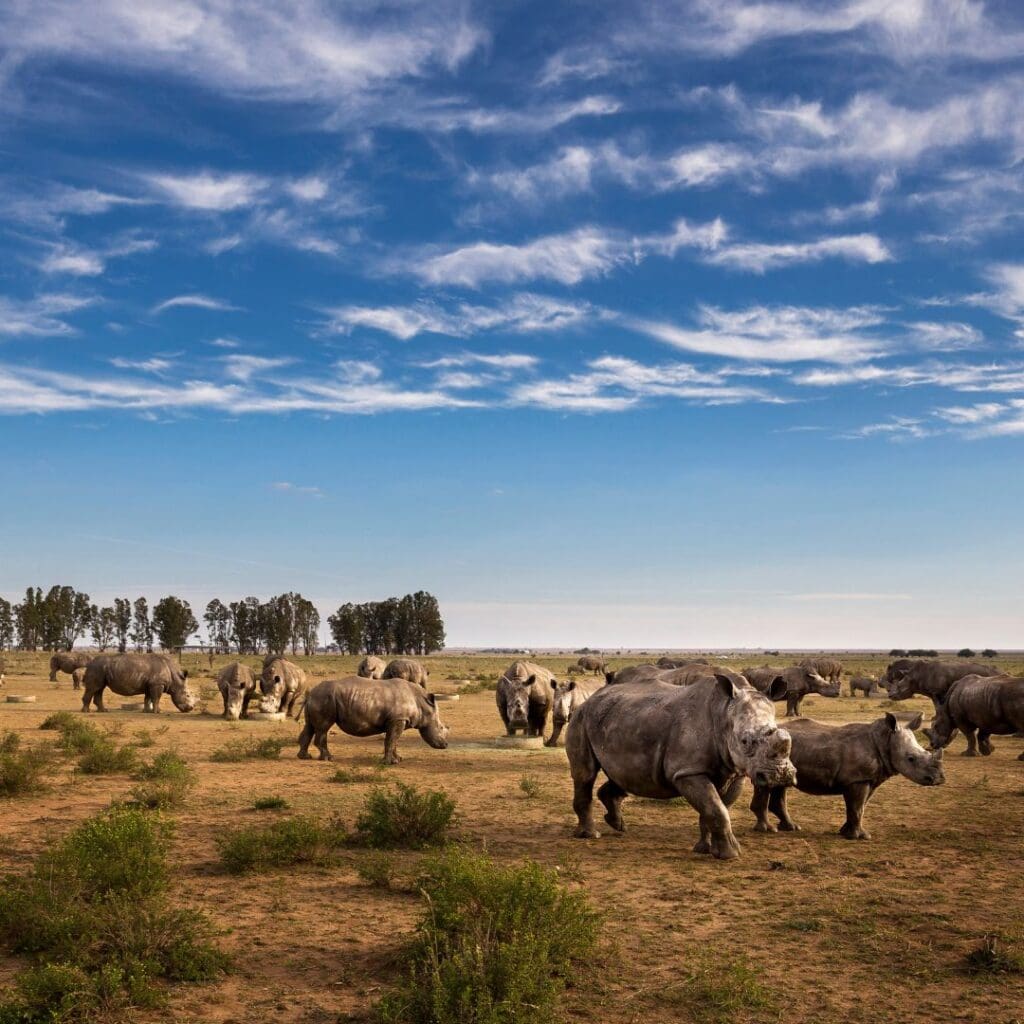

The non-governmental organisation, African Parks has unveiled ambitious plans to reintroduce over 2000 southern white rhinos into the wild over the next decade. This follows the acquisition of John Hume’s controversial rhino breeding farm, Platinum Rhino in South Africa’s North West province. African Parks is dedicated to conserving natural habitats and managing 22 protected areas in collaboration with 12 African governments. Platinum Rhino is the world’s largest private captive rhino breeding operation, housing 2000 southern white rhino on a sprawling 7 800-hectare property. In comparison, this represents 15% of the remaining global wild rhino population.
Due to financial challenges and an uncertain future, Platinum Rhino was put up for auction on 26 April 2023. Unfortunately, no bids were received, which put these rhinos in a vulnerable position to the threats of poaching and habitat fragmentation. Evidently, concerned conservationists recognised the urgency of the situation, and drawing upon the extensive experience in managing protected areas and conducting large scale wildlife translocations, they approached African Parks to provide a solution and secure the future of this declining species.
After they did a rigorous due diligence and with the support of the South African Government, coupled with emergency funding to facilitate the transaction, African Parks has undertaken the responsibility of acquiring the property along with all 2000 rhinos. Now, the primary objective is clear:
– To rewild the rhinos over the next decade by relocating them to well-managed and secure areas.
– Establishing or bolstering strategic populations, ultimately reducing the species’ vulnerability.

As rhino breeding programs are phased out, the project will conclude once all rhinos have been successfully reintroduced into their natural habitats. This endeavour ranks among the most extensive continent-wide rewilding initiatives ever undertaken for any species.
African Parks’ CEO, Peter Fearnhead says: “African Parks had no intention of being the owner of a captive rhino breeding operation with 2000 rhino. However, we fully recognise the moral imperative of finding a solution for these animals so that they can once again play their integral role in fully functioning ecosystems. The scale of this undertaking is simply enormous, and therefore daunting. However, it is equally one of the most exciting and globally strategic conservation opportunities. We will be working with multiple governments, funding partners and conservation organisations who are committed to making this rewilding vision a reality.”
African Parks has been collaborating with governments and local communities for over two decades. Essentially, the goal is to safeguard protected areas and their critical ecosystem services for future generations. Ms. Barbara Creecy, the South African Minister of Forestry, Fisheries and Environment, congratulated African Parks, saying: “Our Government is guided in our approach to conservation by the UN Convention on Biodiversity and our own white paper. In this regard we are ready to support African Parks and other partners with technical and scientific advice in developing a conservation solution that includes translocating the animals over a period of time to suitable parks and community conservancies in South Africa and on the African continent.”
Due to extensive poaching, the southern white rhino species faces immense pressure, particularly in South Africa. Historically, white rhinos comprised two subspecies: the southern white and the northern white. Today northern white rhino is functionally extinct, with only two non-breeding females in captivity in Kenya. In addition, in the 1930s, the southern white rhino population dwindled to an alarming low of 30 to 40 individuals. Eventually – thanks to effective conservation efforts – the numbers rebounded to around 20 000 by 2012. However, relentless poaching for their horns, driven by the illegal wildlife trade, has caused the numbers to drop to less than 13 000 today.
For anyone keen on getting involved with this exciting initiative and for more information, contact Carli Flemmer on +27 82 261 1231 or carlif@africanparks.org.
For travel content, click here.
To subscribe to our weekly newsletter, click here.
Check out our digital magazine here.
Stay up-to-date on the hottest, hippest and most happening things to do in Mzansi!
